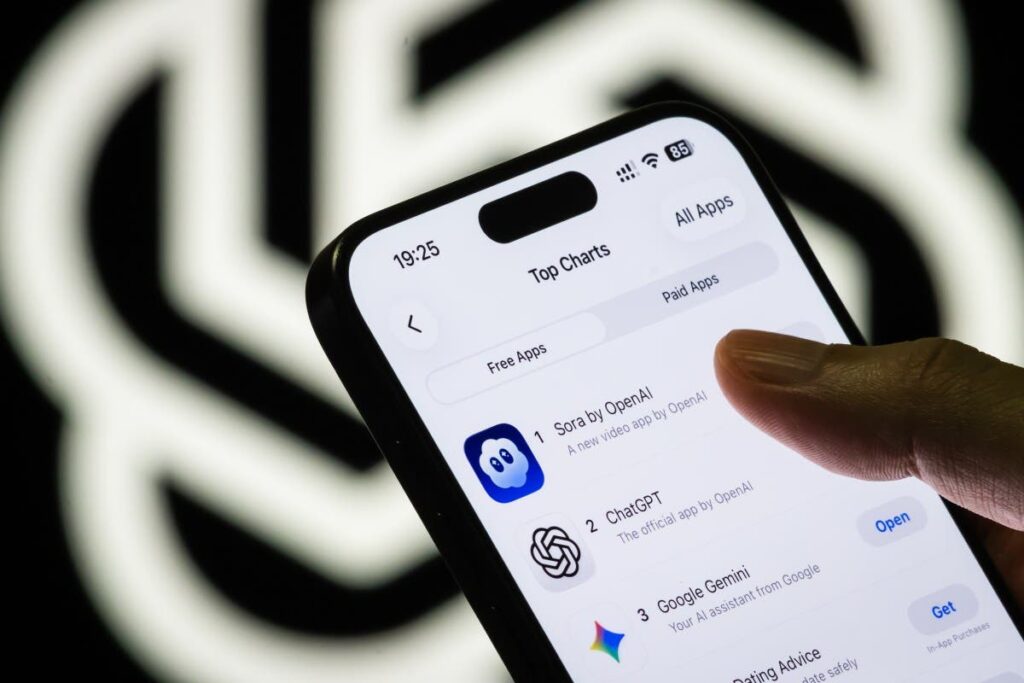While artificial intelligence (AI) is often perceived as a threat to jobs across various industries, a new report found that the technology could be reducing burnout among workers.
In AI platform UKG’s survey of 8,200 front-line workers, those using AI reported lower burnout rates (41 percent) than those not using the technology (54 percent).
Why It Matters
AI has been introduced into nearly every aspect of human life, from the workforce to education and even dating.
While the threat of lost jobs is high from AI across industries, the technology could also make life easier for many workers, reducing burnout in the process.
What To Know
Trepidation around AI is high among workers, but the new report found employees also experienced less burnout when they used the technology.
Front-line workers, who make up 80 percent of the workforce worldwide, reported burnout at a rate of 41 percent when using AI, compared with 54 percent of those who do not incorporate the technology, the report found.
“AI has allowed for many workers to get rid of menial tasks that take up necessary bandwidth and allows for the frontline worker to be more optimal,” Kevin Thompson, CEO of 9i Capital Group and host of the 9innings podcast, told Newsweek.
More than one-third of front-line workers say they use AI, but many still have worries about its larger impact. Two-thirds are concerned that it might replace their job, the survey found, and 25 percent said part of their job had already been replaced by AI.
In five years, 20 percent of the workers said, their job will be completely replaced by the technology.
There’s also a fear of other employees who are more well versed in AI, with 65 percent fearing colleagues skilled in AI could take their job.
“The irony, if done the right way, is that AI can empower people to do what they were meant to do,” Corey Spencer, vice president of AI at UKG, said in a statement. “The global study shows that work needs to be done to better educate, train, and explain the ‘why’ behind AI uses on the frontline. It’s about AI and frontline employees working together to move from menial to meaningful work. When AI is deployed with a people-first focus, it doesn’t feel like you’re using technology — it feels like you’re solving problems.”
What People Are Saying
Dan Schawbel, managing partner at Workplace Intelligence, which was also involved in the study, in a statement: “AI can be a powerful tool for preventing burnout at work, yet our study reveals the trepidation around AI could cause an already-stretched workforce to log even more hours to impress their bosses. This isn’t sustainable, and it’s up to leaders across the frontline to have more open conversations with their teams. Sharing the organization’s short- and long-term AI plans, as well as providing more training on AI tools themselves, can help calm the frontline’s fears so they can work alongside AI more efficiently and with greater personal success.”
Thompson also told Newsweek: “AI is absolutely worth it especially if your coworkers are using it and are being more productive. I don’t see it as much as a disruption as I see it as an assistant to productivity.”
Alex Beene, financial literacy instructor for the University of Tennessee at Martin, told Newsweek: “While there are valid concerns over the long-term impact of artificial intelligence, there’s no denying in the short term it’s helping many employees complete work quicker and more efficiently. Being able to ‘outsource’ easier, mundane tasks to AI can make jobs feel easier and less stressful. Seeing the difference between workers’ stress levels who do and do not use AI says so much about the benefits.”
What Happens Next
Across industries, experts are warning that employees who cultivate AI will move forward while those who do not get left behind.
“I think it will be a positive for many workers that use AI, and those that ignore it will be pushed aside due to lower productivity,” Thompson said. “Will some jobs be phased out, of course, but those jobs were always subject to disruption as economies become more affluent.”
Schawbel echoed this sentiment, saying: “While some worry about career disruption, our data shows that workers who embrace AI often feel more supported and less overwhelmed, showing that AI can be a net positive when implemented thoughtfully.
“Going forward, AI will continue to reshape roles, but the real opportunity lies in using it as a tool to augment—not replace—human talent, giving people more flexibility, efficiency, and balance. The challenge will be ensuring organizations provide the right training and support so that all employees can share in the benefits.”
Read the full article here

